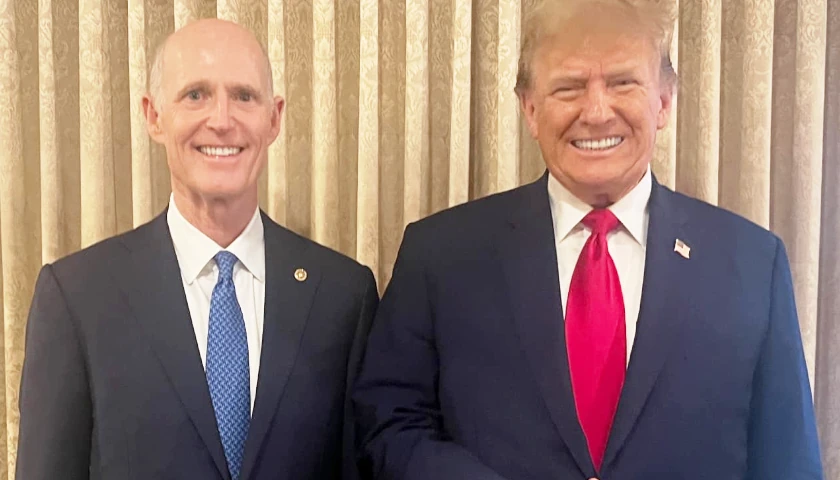The Biden administration will once again sow its seeds of division by proposing a rule to “protect” those claiming “gender identity” discrimination in federal healthcare programs, a move that is expected to generate religious freedom disputes.
The Biden Department of Health and Human Services (HHS) announced Monday its proposed rule will implement Section 1557 of the Affordable Care Act (Obamacare) to affirm that “protections against discrimination on the basis of sex, including sexual orientation and gender identity” are “consistent with the U.S. Supreme Court’s holding in Bostock v. Clayton County,” and to reiterate “protections from discrimination for seeking reproductive health care services.”
“This proposed rule ensures that people nationwide can access health care free from discrimination,” said HHS Secretary Xavier Becerra in a statement. “Standing with communities in need is critical, particularly given increased attacks on women, trans youth, and healthcare providers. Health care should be a right, not dependent on looks, location, love, language, or the type of care someone needs.”
As the Washington Examiner noted, however, the proposed rule is poised to generate lawsuits by individuals who object to providing transgender services, such as puberty blockers, cross-sex hormones, and elective double mastectomies, on the grounds they violate their faith-based or moral conscience freedoms.
“Becerra said he expects the rule to garner lawsuits alleging infringement on religious liberties once it has been finalized, which is not expected to come until next year,” the Examiner reported.
In its 2020 decision in Bostock v. Clayton County, the Court ruled an employer who fires a worker based on their sexual orientation or gender identity violates Title VII of the Civil Rights Act of 1964.
The rule is also consistent, HHS said, with Biden’s executive orders, including Preventing and Combating Discrimination on the Basis of Gender Identity or Sexual Orientation, issued January 20, 2021, which also justified the reinterpretation of “sex” to include “sexual orientation” and “gender identity” by the ruling in Bostock:
In Bostock v. Clayton County … the Supreme Court held that Title VII’s prohibition on discrimination “because of . . . sex” covers discrimination on the basis of gender identity and sexual orientation. Under Bostock‘s reasoning, laws that prohibit sex discrimination — including Title IX of the Education Amendments of 1972, as amended … the Fair Housing Act, as amended … and section 412 of the Immigration and Nationality Act, as amended … along with their respective implementing regulations — prohibit discrimination on the basis of gender identity or sexual orientation, so long as the laws do not contain sufficient indications to the contrary.
On July 15, however, a federal judge temporarily blocked the Biden education department’s “guidance” that attempted to reinterpret federal law to require schools receiving Title IX funding to allow males to participate in female sports and use female-designated bathrooms and locker rooms.
In a case that saw 20 state attorneys general file a lawsuit against the U.S. Education Department regarding Biden’s executive order that seeks protection for people who claim “gender identity” discrimination under Title IX, Judge Charles Atchley Jr. of U.S. District Court for the Eastern District of Tennessee wrote the administration’s guidance is based, in part, on a flawed interpretation of Bostock.
Atchley wrote:
In Bostock v. Clayton County, the Supreme Court of the United States was asked to resolve a discrete legal issue: whether Title VII of the Civil Rights Act of 1964, which prohibits employment discrimination “because of…sex,” bars an employer from firing someone simply for being homosexual or transgender. 140 S. Ct. 1731, 1738-39 (2020). The Court answered this question affirmatively.
“Both the Department and EEOC [Equal Employment Opportunity Commission] maintain that their respective guidance documents are required by the Bostock decision,” the judge continued, adding:
However, Defendants ignore the limited reach of Bostock. The Bostock decision only addressed sex discrimination under Title VII; the Supreme Court expressly declined to “prejudge” how its holding would apply to “other federal or state laws that prohibit sex discrimination” such as Title IX … Similarly, the Supreme Court explicitly refused to decide whether “sex-segregated bathrooms, locker rooms, and dress codes” violate Title VII … Bostock does not require Defendants’ interpretations of Title VII and IX. Instead, Defendants fail to cabin themselves to Bostock’s holding. Defendants’ guidance documents advance new interpretations of Titles VII and IX and impose new legal obligations on regulated entities.
“If history is any indicator, I think there will be, like, hundreds of thousands of comments on this regulation, and then it will get finalized, and then it will be litigated,” Katie Keith, a Georgetown University Law School health law and policy expert, told the Examiner. “I would expect folks to be making the same types of arguments that we’ve seen in the previous round, both in comments and in court.”
– – –
Susan Berry, PhD, is national education editor at The Star News Network. Email tips to [email protected].




